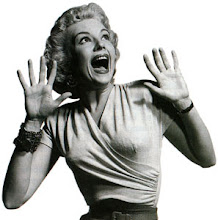The Way Back charts the journey of a group of seven men, who escape from a Siberian gulag in 1940 and make their way across a number of countries to safety in India. This film marks Australian director Peter Weir’s (Master and Commander, The Truman Show) return to filmmaking after a seven-year hiatus. While the renowned director has tried to use the film to show the resilience of the human spirit, ultimately the end result is very pretty but sadly emotionless fare.
British actor Jim Sturgess (Across the Universe) stars as Janusz, a Polish man transported to a labour camp in Siberia by the invading Soviet forces for being a spy. Here Janusz stands out because of his kindness and quickly recruits a group of Eastern European political prisoners, and a solitary American prisoner, Mr. Smith (Ed Harris, A History of Violence) to plan an escape. During a ferocious snowstorm, they break out along with an unexpected companion, a violent Russian criminal, Valka (Colin Farrell, In Bruges) in tow.
The Way Back has been adapted from Slawomir Rawicz‘ memoir, The Long Walk: The True Story of a Trek to Freedom (1956). However the truth of his story has long been debated and records show that although he was imprisoned in Siberia during WWII he didn’t escape but was released. It is widely believed that Rawicz’ book was based on accounts he heard during his time stationed in the Middle East after 1942. Weir has been very careful to state that this film is inspired by, as opposed to based on Rawicz’ account. Perhaps it is the director’s apprehension towards the material that has caused him to focus much more on the landscape than the film’s characters?
Creating an epic film that travels across Russia, Mongolia, China and Tibet (which was actually filmed in Bulgaria and Morocco) the film’s impressive cinematography (thanks to Russell Boyd) frames the desperate men against the imposing landscapes they must overcome. But watching this film it feels like nature wins out in the end. The characters are so underdeveloped that there exists no real relationship between them on screen or in fact between characters and the audience. Saoirse Ronan’s (Atonement) appearance as an orphaned Polish waif lends the film some emotion as her character is used to bring out backstory details about the men, but the only real benefactor of this is Harris’ character. The other characters are all pretty much reduced to singular traits; Good guy- Janusz, bad guy- Valka, priest- Voss (Gustaf Skarsgård), comedian- Zoran (Dragos Bucur), artist- Tamasz (Alexandru Potocean) and weakling- Kazik (Sebastian Urzendowsky).
Weir who co-wrote the screenplay fails to inject any real sense of human drama into the film and it is pretty apparent from early on which characters will make it and who will die along the way. The four time Oscar-nominated director seems to have lost his way with this film, and this is especially disappointing considering his calibre as a filmmaker.
Images provided by Roadshow Publicity
First published on Trespass




